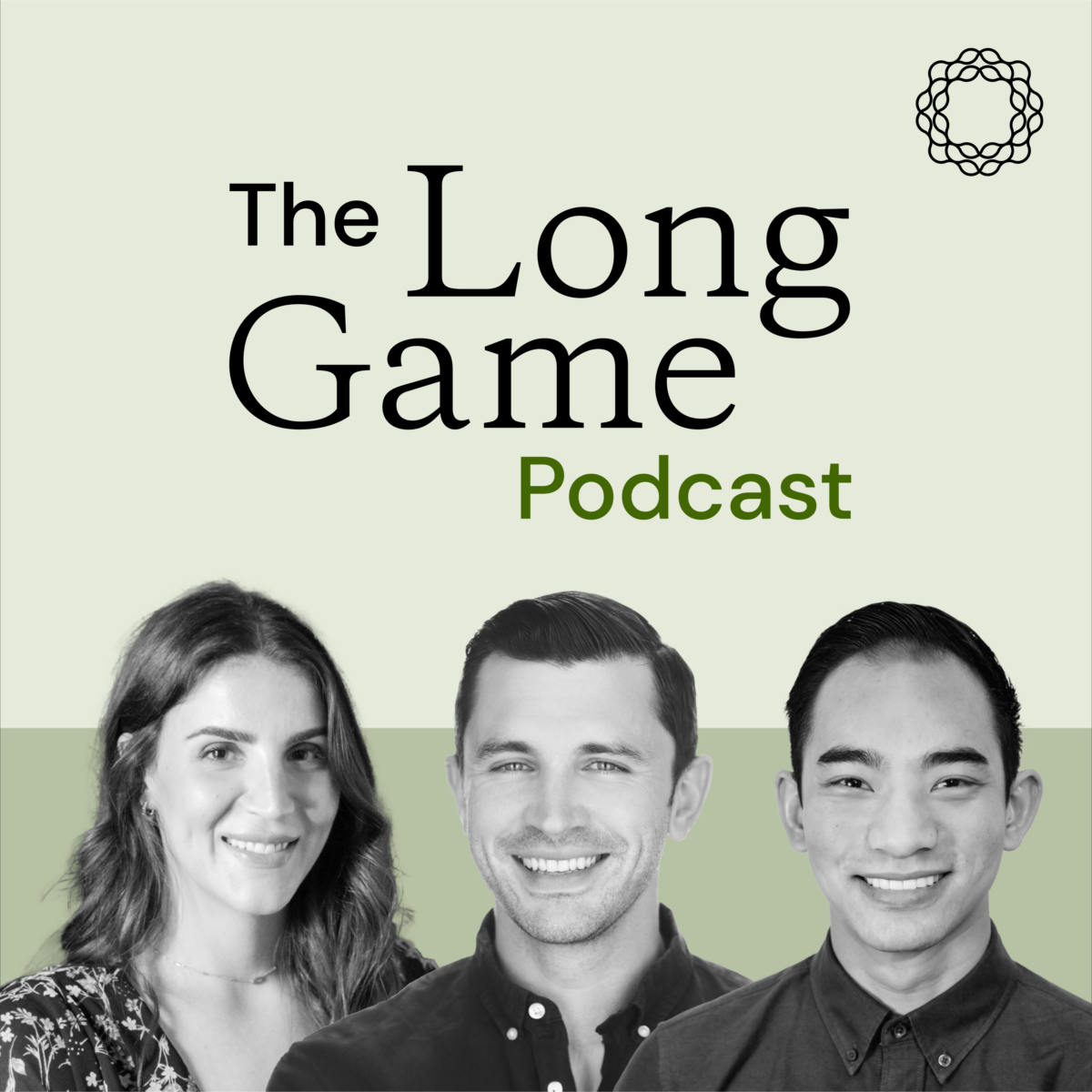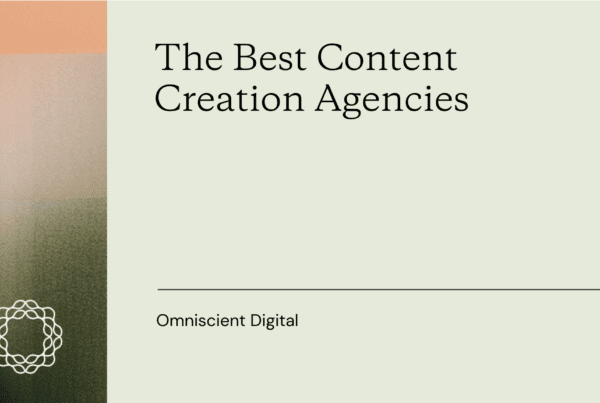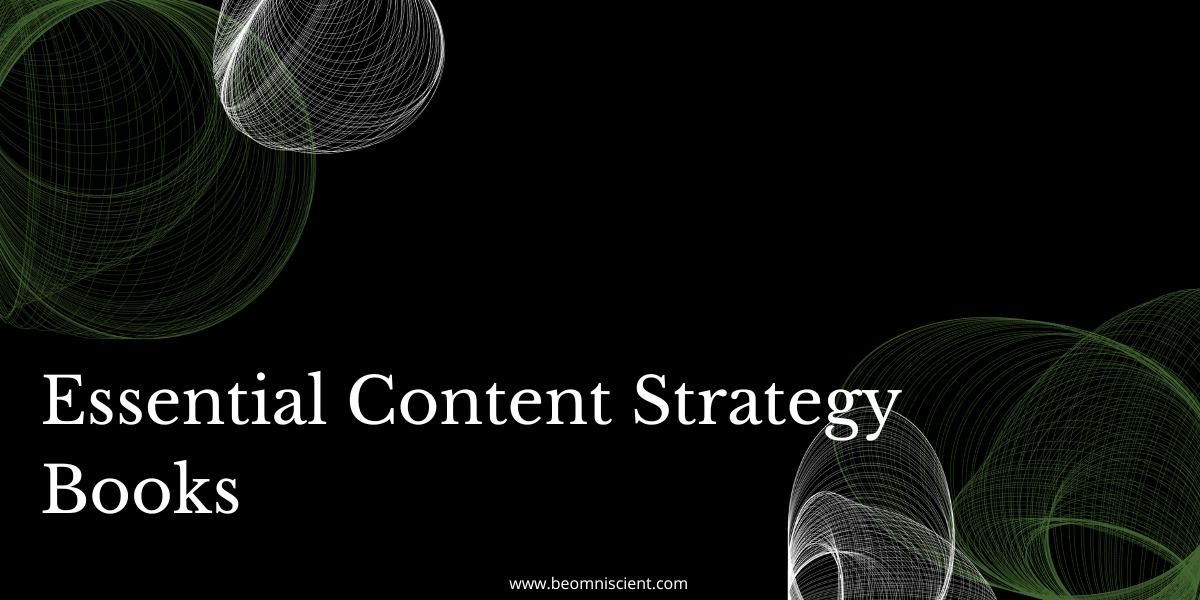
Content strategy is one of the most overlooked skills in business. It’s the foundational glue that holds together your content efforts and translates it into tangible business results.
The problem is content strategy is not a skill you can simply pick up from a basic Dummies guide. It encompasses a huge range of essential skills such as writing, editing, SEO, analytics, leadership, time management, and, most importantly, business strategy. And–providing you could find a book that teaches all of these skills–it’s unlikely they’ll cover the depth required to truly excel.
In this article, the Omniscient team and I have carefully selected a list of top books that cover these essential skills. This is not a generic list of books plucked from Amazon; each book has been personally read and recommended based on its relevance to content strategy.
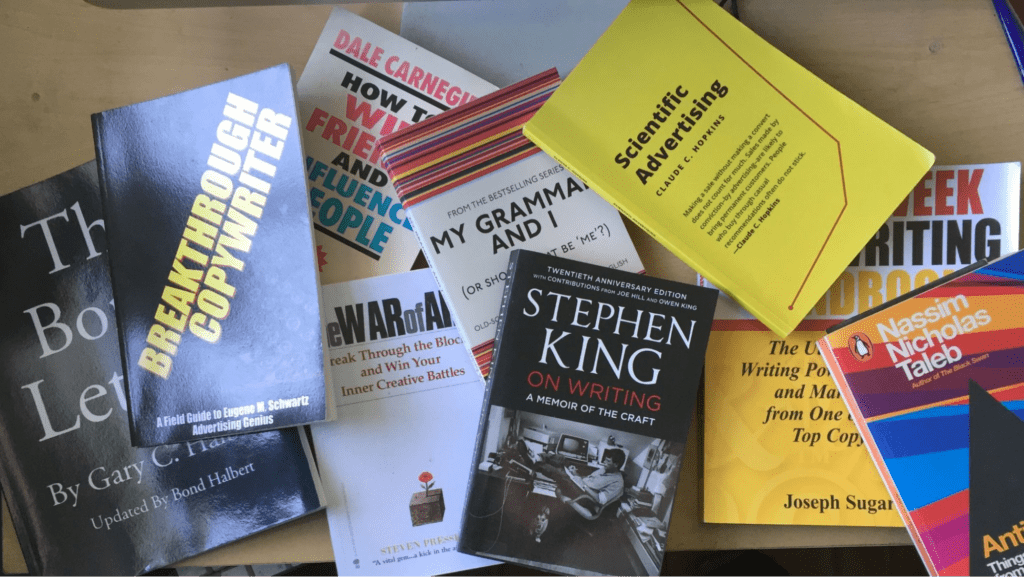
Our Top Books For Writing Well
Content strategists must first and foremost be exceptional writers. These writing books will help point you in the right direction and boost your content creation efforts:
Copywriting
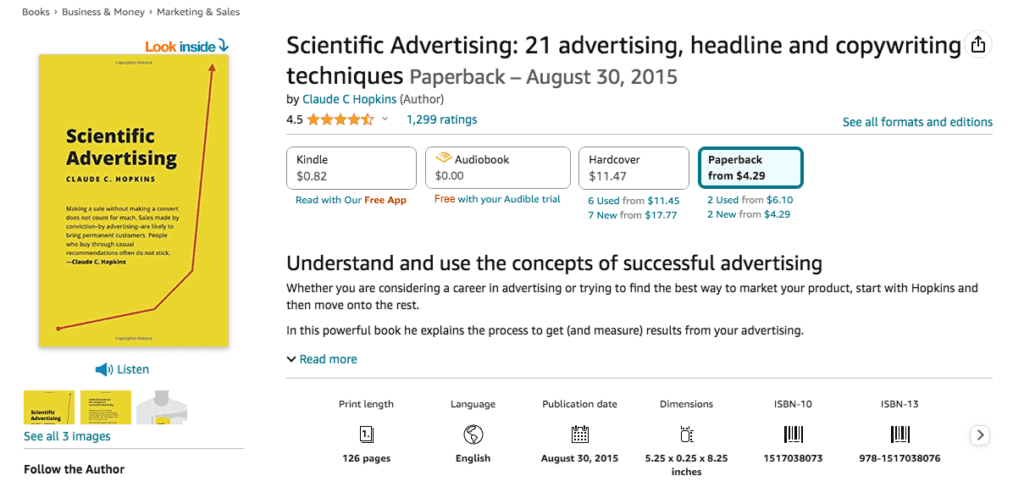
“Nobody should be allowed to have anything to do with advertising until he has read this book seven times. It changed the course of my life.”–David Ogilvy
This tiny book was written in 1923. Do these traditional marketing models still apply in 2023? You bet. In the world of content marketing, there’s a tendency to get distracted by meaningless metrics and forget the strategy behind our words. As Hopkins rather bluntly reminds us:
“The only purpose of advertising is to make sales. It is profitable or unprofitable according to its actual sales.”
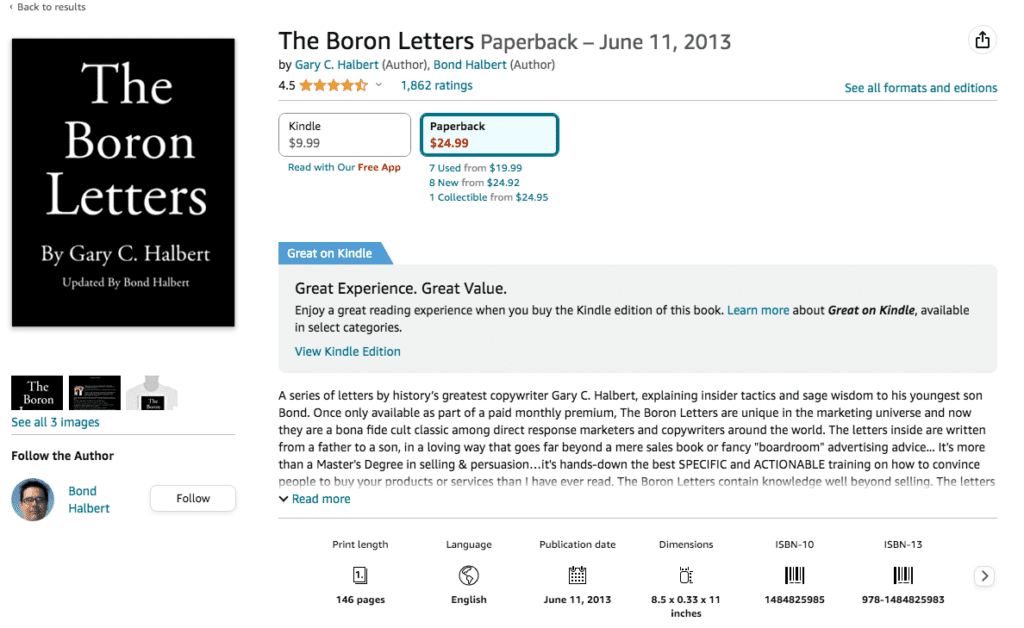
While Halbert may have made his fortune in the direct mail business, this book remains the essential go-to-guide for aspiring copywriters and content marketers. In this series of entertaining letters, Gary Halbert teaches the importance of switching from a “benefit-first” mindset to “customer-first”. This small but profound distinction altered my entire perspective on sales and persuasion.
In true Inbound Marketing fashion, we must identify the demand first; offer the solution second.
“The very first thing you must come to realize is that you must become a ‘student of the markets’. Not products. Not techniques. Not copywriting. Not how to buy space or whatever. Now, of course all of these things are important and you must learn about them, but, first and the most important thing you must learn is what people want to buy.”–Gary Halbert
If you’re ready to delve even deeper into content creation, look no further than Aaron Orendorff’s must-read books for writing better content:

Editing/Grammar
Grammar is a touchy subject.
Many writers argue that it’s too academic–preferring to “write like people speak”. While others will obsess over the nitty-gritty of indefinite articles and intransitive verbs. Here’s my take: learn the rules so that you know when you can break them.
As a content strategist, you will undoubtedly be tasked with editing the work of other writers. Rather than solely relying on gut instinct, it’s useful to know why some sentences don’t work and how to fix them.
I picked up this great little read based on Dom Kent’s recommendation.

This book can teach you the fundamentals within a few hours. And, unlike most dense grammatical textbooks, it breaks down the rules with simple but fascinating tangents–like this:
“Octopus is a one-word minefield, because it is a Latinized form of a Greek word, oktopous, whose ‘correct’ plural form would be octopodes. Chambers Dictionary describes this as archaic and gives octopuses as the correct form. ‘Octopi’, it says austerely, ‘is wrong.’ But right or wrong, if enough people use it, octopi, which has no justification in etymological terms, will work its way into the dictionaries in time.”
Wonderful Writing Books
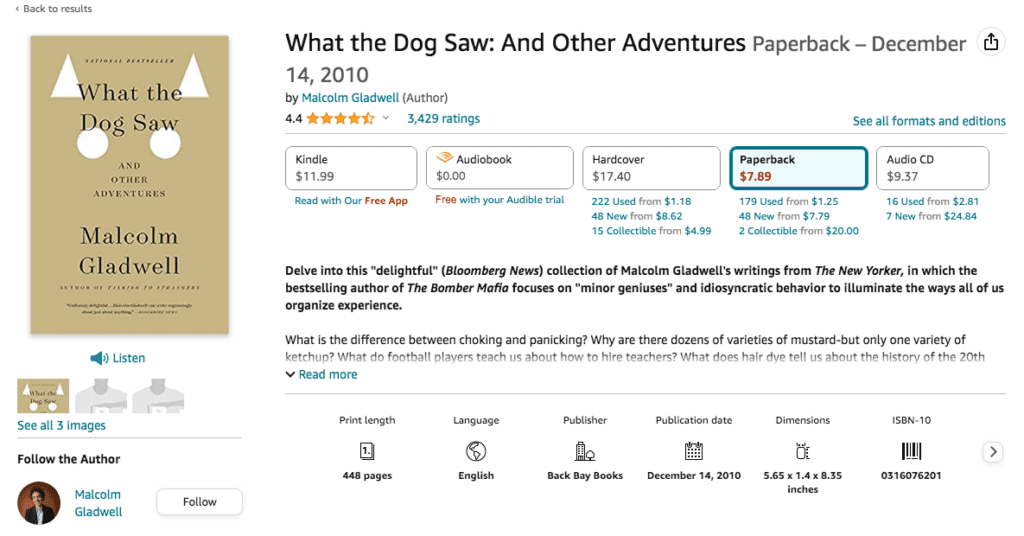
“This is a collection of Malcolm Gladwell’s New Yorker essays. It’s not an explicit instruction manual on writing, but you can read between the lines and learn what an iconic essayist uses to structure his thoughts, ideas, and words. Even better if you couple it with his MasterClass course, where he talks about the background story of some of the essays. “–Alex Birkett
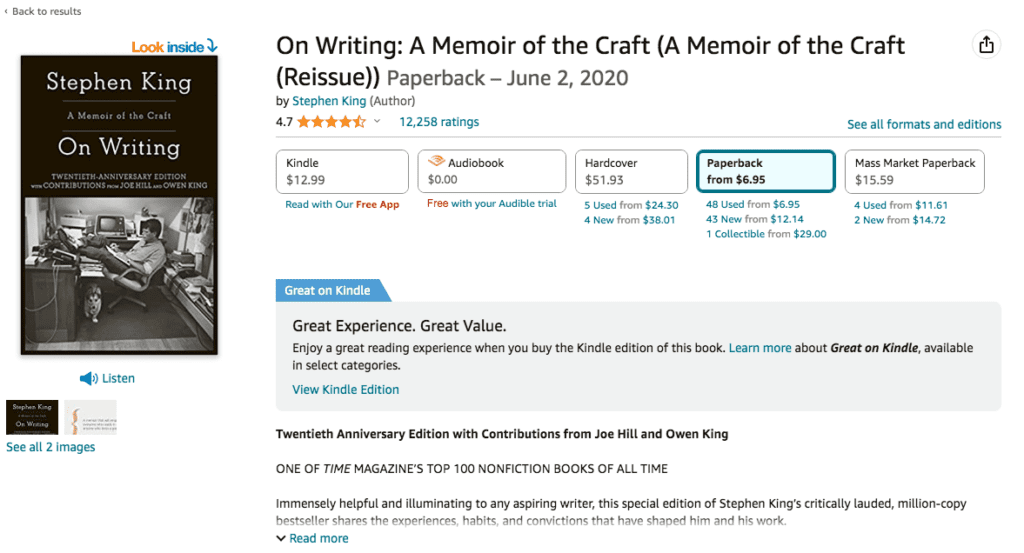
(Top pick from Omniscient Content Strategist, Alex Diaz)
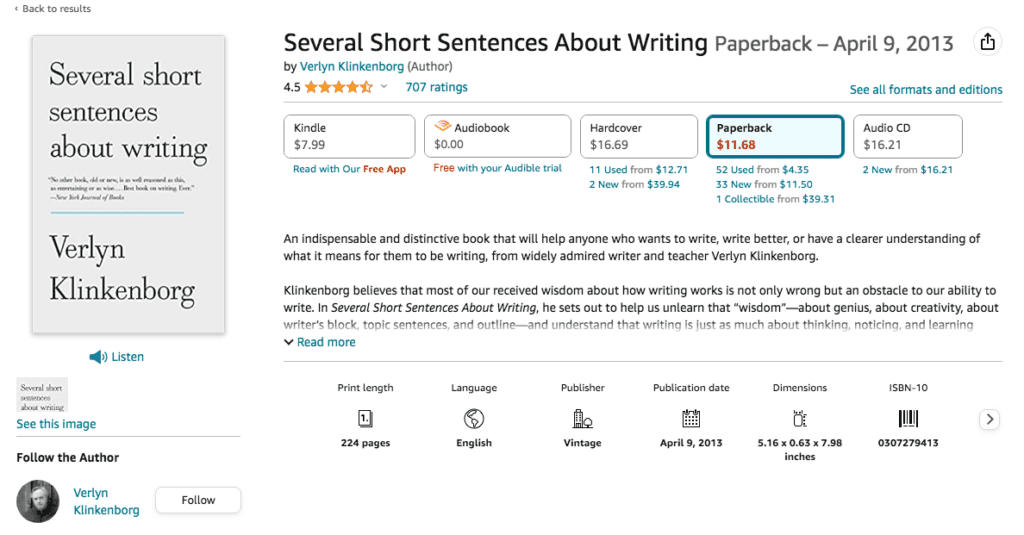
If you feel bogged down by the burden of content outlines, grammatical rules, writing style and creative inspiration–read this. This book teaches the fundamentals of great writing in a simple but utterly mesmeric way. Klinkenborg makes writing joyous and playful again. Highly recommended!
“There are innumerable ways to write badly. The usual way is making sentences that don’t say what you think they do. Which can the reader possibly believe? Your sentences or you?”–Verlyn Klinkenborg
Our Top Books For Strategic Thinking
As a content strategist, it’s almost guaranteed that you’ll have to learn the finicky art of managing others. The job involves lots of to-do lists, content calendars, and managing writers.
These book suggestions will help to speed up the learning curve and implement a practical content strategy:
Leadership
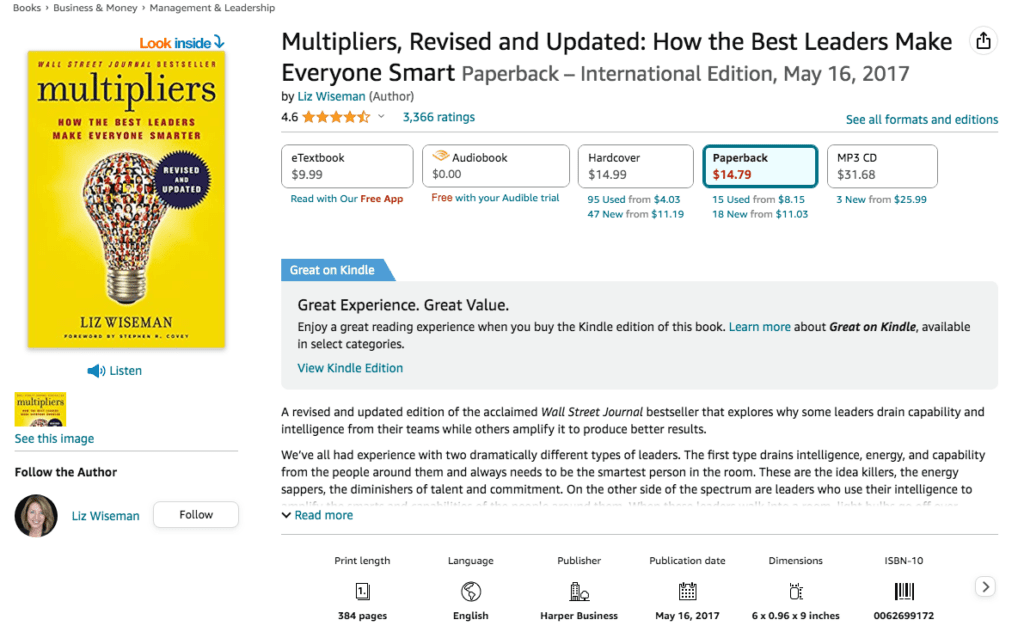
“Multipliers invoke each person’s unique intelligence and create an atmosphere of genius—innovation, productive effort, and collective intelligence.”― Liz Wiseman
“There are multipliers, who help enable their team to reach new heights they didn’t think possible, and diminishers, managers who seem to squash the life out of their team. All of us have been “accidental diminishers” before, and all of us have (hopefully) had the experience of working with a multiplier. “–Alex Birkett

Great Leadership requires a combination of vision and courage to do things differently; Chouinard delivers both qualities in bucket-loads. If you’ve ever wondered what kind of leader it takes to build one of the most beloved and influential tribes on the planet–this book is for you. His story and business philosophy is simply stunning.
Here’s a lovely example:
“We make certain assumptions about our customers, not just that they are intelligent. We assume that they don’t shop as entertainment, that they’re not out to “buy a life,” that they want to deepen and simplify, not junk up, their lives, and that they are fed up with or indifferent to being targets for aggressive advertising. We know that for customers as well as for ourselves, the most valued advice we can receive is that from a trusted friend. After that, we respect the opinions of pros or experts like outdoor instructors, climbing guides, fishing guides or river outfitters.”
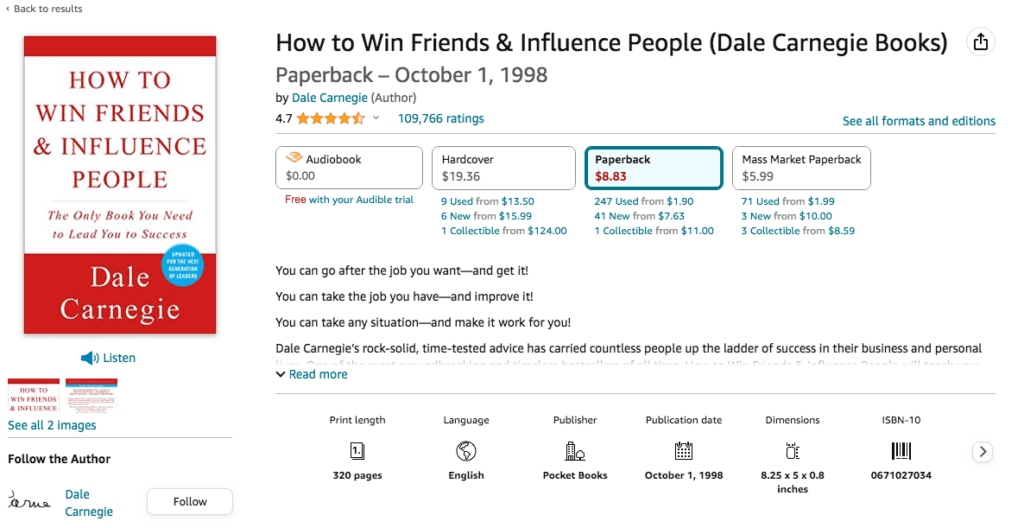
Dale Carnegie makes social skills feasible–even for the most introverted folks, myself included. His simple framework breaks down the nuanced soft skills like negotiation, conflict resolution and instilling enthusiasm in your team.
This particular line has stuck with me ever since I read the book a few years ago:
“You can make more friends in two months by becoming interested in other people than you can in two years by trying to get other people interested in you.”–Dale Carnegie
Time Management/Productivity
When you’re responsible for a team of writers–each working on their own digital marketing tasks–keeping on top of your to-do list is a must.
These two books can help get more of the important work done:
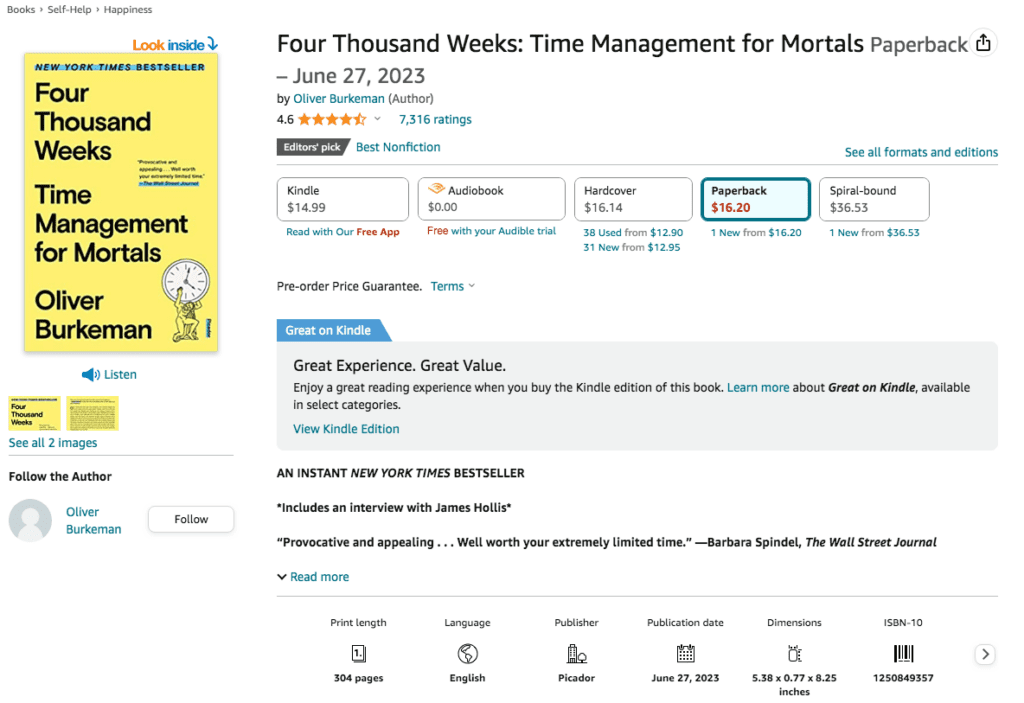
“We’ve been granted the mental capacities to make almost infinitely ambitious plans, yet practically no time at all to put them into action.”― Oliver Burkeman
“This book eschews common productivity hacks and tricks, and instead, it focuses on this truth: we’re all going to die, and we’ll never be able to accomplish everything we want to accomplish. So choose wisely and accept your human limitations.
No more focus on morning routines, ice baths, and pomodoro timers, but rather on the larger questions of what is worth working on”–Alex Birkett
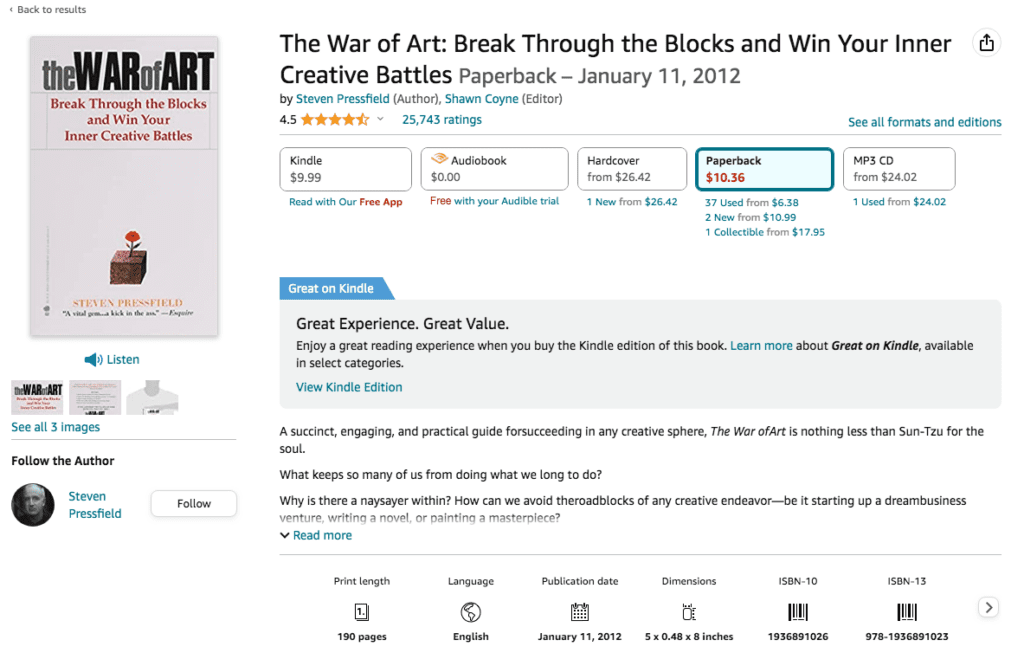
“There’s a secret that real writers know that wannabe writers don’t, and the secret is this: It’s not the writing part that’s hard. What’s hard is sitting down to write. What keeps us from sitting down is Resistance.”–Steven Pressfield
Pressfield reminds us that real writers show up consistently–regardless of how they feel. To receive the compounding effect of long-term practice, we must learn to overcome our internal resistance. Procrastination is an undeniable part of content creation, the key is to persevere regardless.
Search Engine Optimization and Analytics
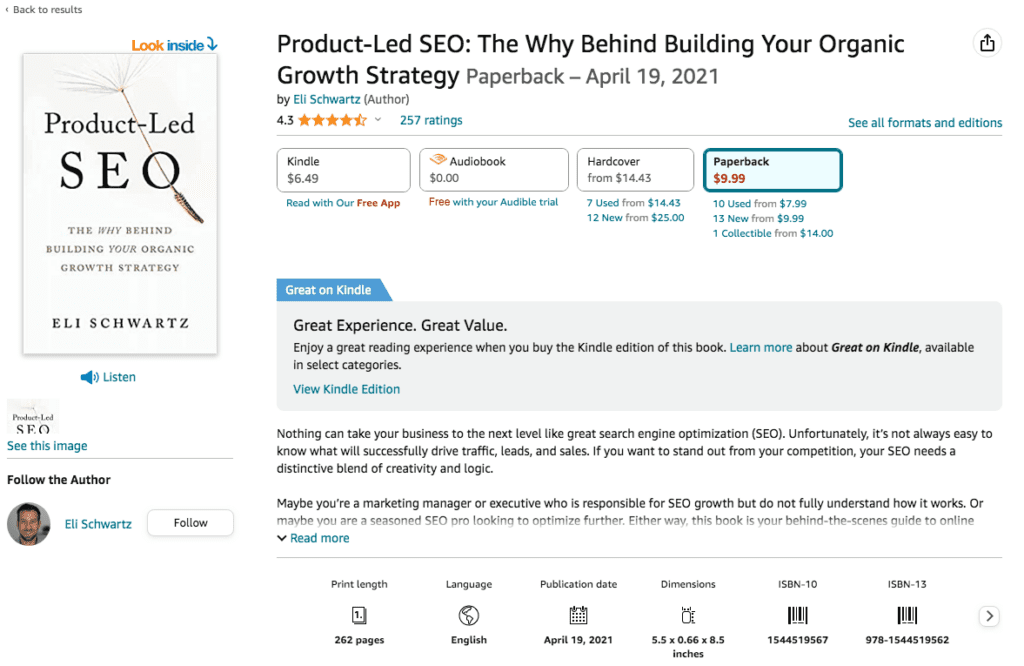
“Eli Schwartz’s Product-Led SEO provides both fundamental SEO as strategy as well as a product management mindset. It gets us out of the weeds of traditional keyword-first SEO thinking and causes us to ask more fundamental questions like “what’s our moat,” “what can our product uniquely solve for and how can we build an SEO strategy around the unique product differentiators?” –Alex Birkett
For more picks on everything analytics, SEO and CRO, Alex Birkett has written a great list.
Sage Strategy and Creative Thinking Books
Great content strategists are known to have eclectic reading taste. It helps with divergent thinking.
Here are four picks sure to get your creative synapses firing:
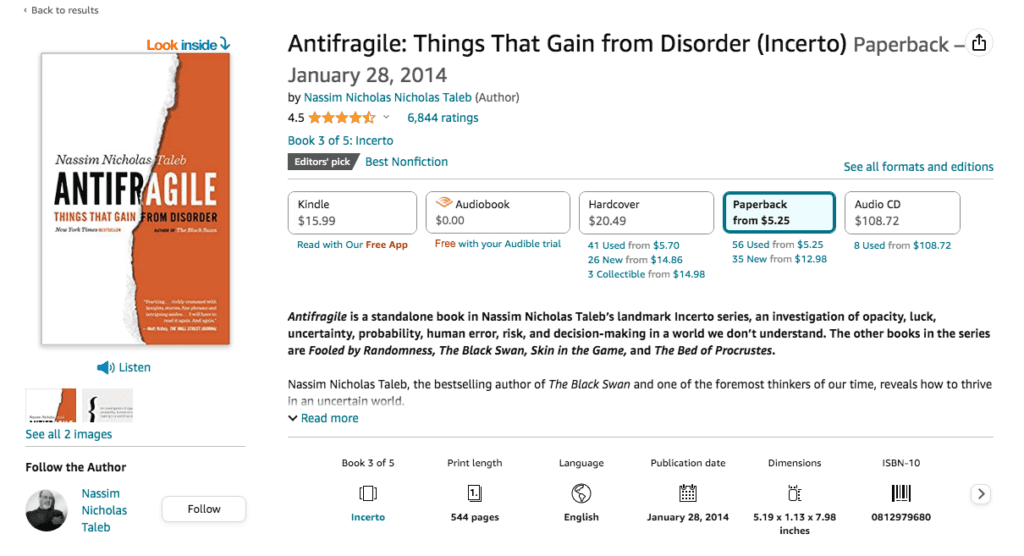
“I’ve taken a very large amount of my ideas about marketing and business strategy from Nassim Taleb’s books. You can see this quite literally in my Barbell Content Marketing strategy framework.
Nassim Taleb teaches us how to operate in a world marked by randomness and uncertainty.”–Alex Birkett
“I want to live happily in a world I don’t understand.”― Nassim Nicholas Taleb

(Top pick from Omniscient Content Strategist, Alex Diaz)
Amazon’s Book Description:
“With digital content published across more channels than ever before, how can you make yours easy to find, use, and share? Is your content ready for the next wave of content platforms and devices?
In Designing Connected Content, Mike Atherton and Carrie Hane share an end-to-end process for building a structured content framework. They show you how to research and model your subject area based on a shared understanding of the important concepts, and how to plan and design interfaces for mobile, desktop, voice, and beyond. You will learn to reuse and remix your valuable content assets to meet the needs of today and the opportunities of tomorrow.”
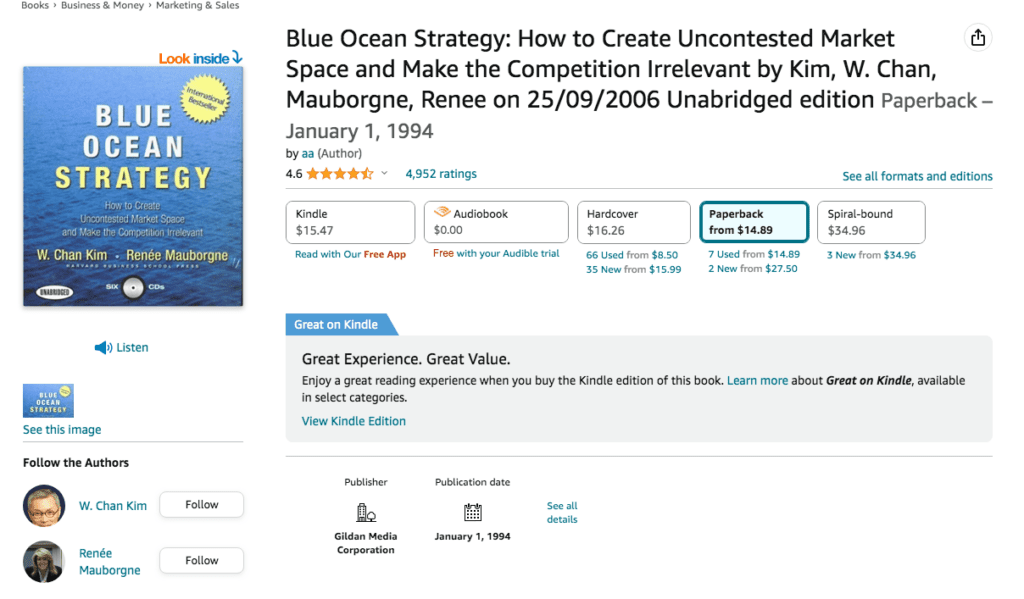
In 2023, content marketing and social media marketing are both insanely competitive. Conveying your marketing messages to your target audience is harder and more expensive than it used to be.
Is there a solution beyond simply creating compelling content?
According to W. Chan Kim and Renee Mauborgne, we should aim to serve “Blue Oceans–uncongested markets–and aim to become a category of one. Instead of working harder, they offer a strategic framework to work smarter.
What exactly does this look like in terms of SEO and content strategy? Alex has written a great blog post here.
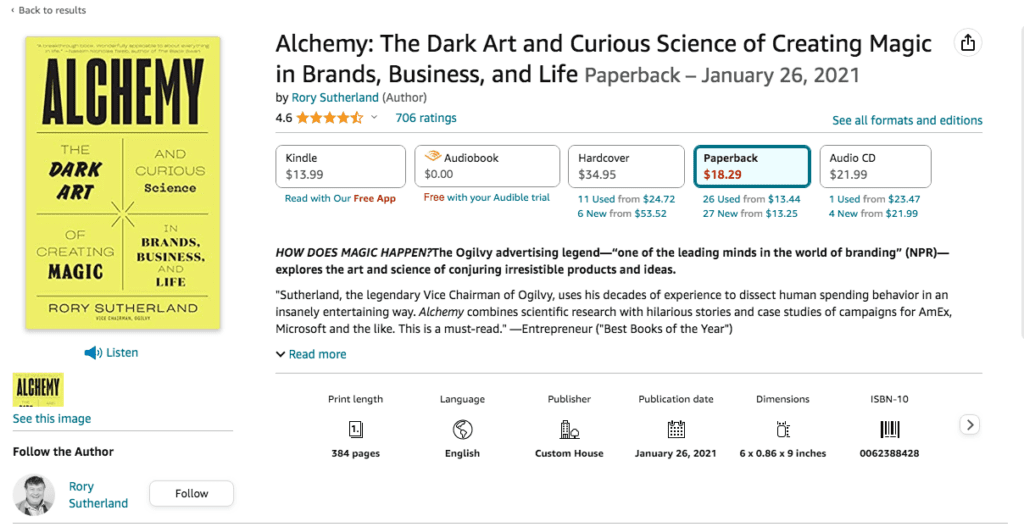
“Alchemy by Rory Sutherland is an ode to creativity and outside-the-box thinking. Sometimes the solution is irrational. Many times, in fact, the solution doesn’t fit into linear thinking.”–Alex Birkett
Conclusion
Content strategy is a diverse and complicated topic, but hopefully a few of these suggestions will begin to demystify it.
From mastering the content writing business to optimizing for search engines to harnessing the power of analytics and honing your business strategy–there’s a lot to learn. Just remember it’s not necessary to learn everything about content strategy overnight. Expand your understanding bit by bit, book by book.
Got any of your own recommendations?
